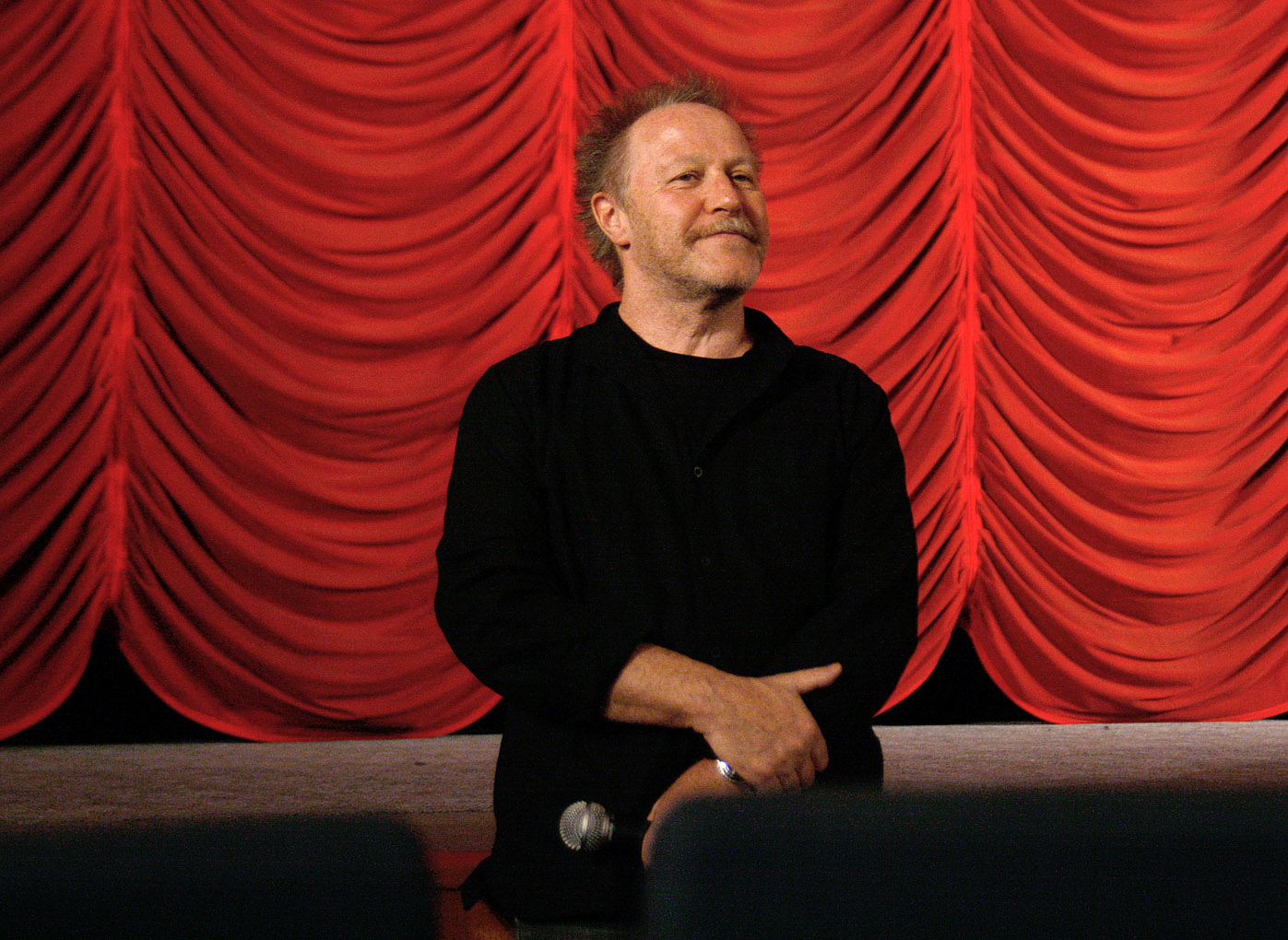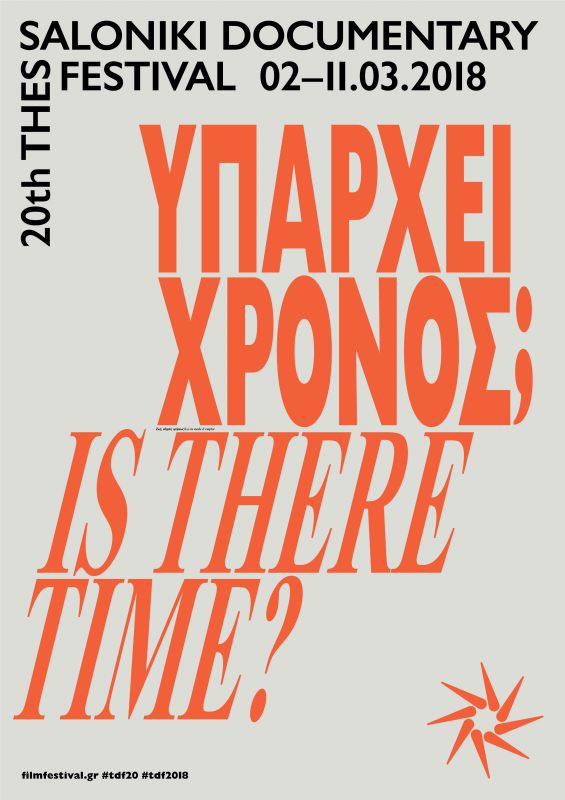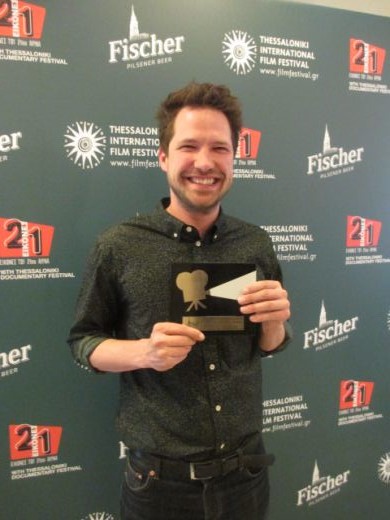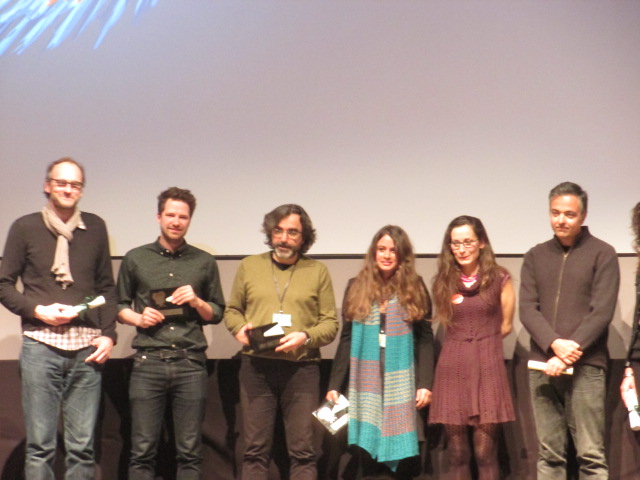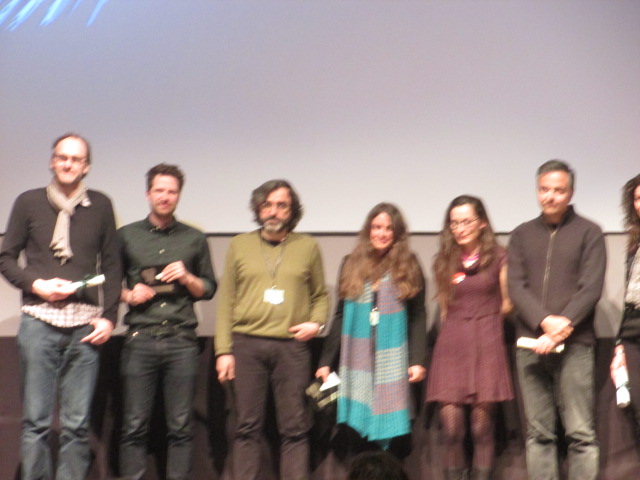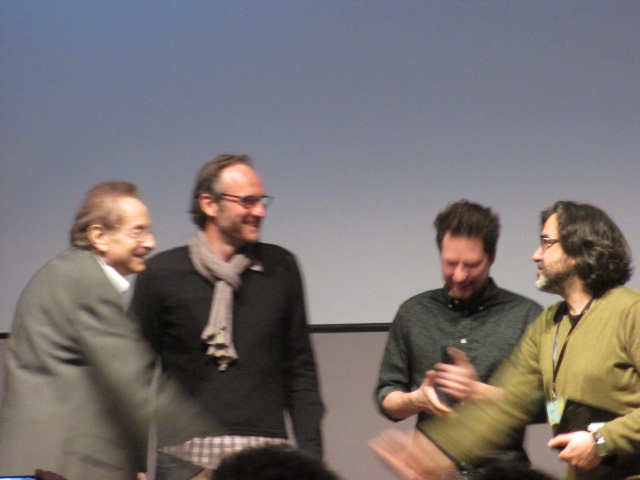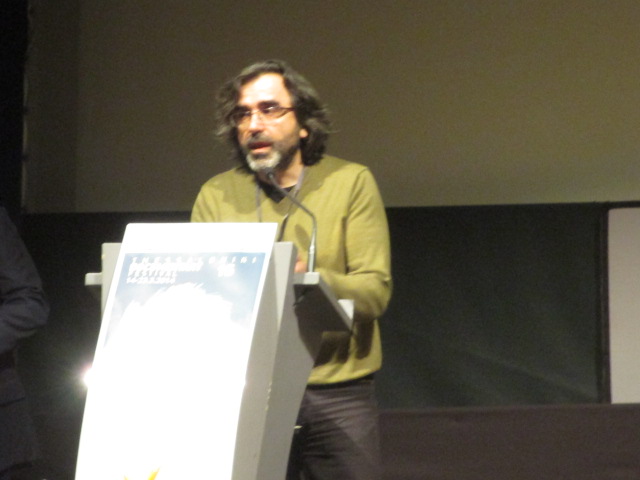|
|
||
|
Pro Tools
FILMFESTIVALS | 24/7 world wide coverageWelcome ! Enjoy the best of both worlds: Film & Festival News, exploring the best of the film festivals community. Launched in 1995, relentlessly connecting films to festivals, documenting and promoting festivals worldwide. Working on an upgrade soon. For collaboration, editorial contributions, or publicity, please send us an email here. User login |
Nicolas Philibert Press Conference @ 16th TDF
French director Nicolas Philibert gave a press conference on Friday 21 March 2014, in the context of the 16th Thessaloniki Documentary Festival, which is paying tribute to his work. “I apologize for not speaking Greek. My father, however, did study ancient Greek and this always impressed me about him,” Nicolas Philibert said in his opening remarks. Talking about the elements that link his documentaries, he said: “The first one is that I always try to “infiltrate” a group of people. My films are about working people, but I believe that at a deeper level they revolve around language, speech, voice. I am interested in sound, in noise, in language; these are the things that all my films have in common. There is also an underlying political theme in all my work, a moral theme if you will, which could be epitomized by the question: “What on earth am I doing here?” The filmmaker argued that the subject of a film is not its most important element. “We live in a world of communication, image and sound. It is up to us to raise questions about this avalanche of images and sounds that engulf us. I believe that we should at some point turn the tap off and stop all those images and sounds pouring out around us. In my films the theme is perhaps only there for the sake of appearances. What I mean is that of course there is always a theme, but it serves only as the excuse. What interests me is to go one step further and investigate the human comedy. The theme is only a gateway. Good films are the ones that become larger than their theme.” Talking about his methodology, he said: “The truth is that I do not like preparing for a film. The less I know, especially in the beginning, the better. I avoid reading about my subject or meeting with specialists and analysts. Of course I appreciate their work, but I prefer it when I don’t know much. I want ignorance to drive my work, to keep my curiosity alive. Otherwise, I would not have the interest in making a film. For example, before starting the shoot for Every Little Thing, I had visited the De La Borde psychiatric hospital. During my first visit I met the manager, who welcomed me and asked me if I was planning to make a film there. I told him “I don’t know, we’ll see, I will think about it.” He tried to explain the peculiarities and philosophy of the hospital, but I asked him to stop; I did not want him to explain everything to me immediately. When I make films, it is not my intention to educate people. This would threaten the cinematic aspect of my film. Because cinema is not about the presentation of knowledge. I do not want to have the advantage or stand above the audience. If the filmmaker knows too much, when the time comes to start filming, he tries to shape things according to his preexisting knowledge. I am not interested in comfortable certainty, but in the precariousness of the unpredictable. The invisible side is always the interesting side of things.” Explaining what attracted him in the documentary genre, he explained: “I had decided to make my first film a documentary, because I thought it would be easier compared to fiction. I initially thought I would start with documentaries and then move on to fiction. But I enjoyed it and I was eager to do one more. And then another followed, and then another. Being here in Thessaloniki and seeing the theaters packed has made me realize how much the genre has evolved. Many people think that documentaries are not ‘true’ cinema. I have an uncle who has never missed a premiere and enjoys my films, but every single time he asks me when I will be doing a real movie! I have a theory: Documentary is just another way of making fiction. Exactly like the Lumière brothers did in the late 19th century.” Asked about what makes him decide what film to make, he said: “The truth is that you need to transcend yourself. I ask myself ‘why am I making films?’ Perhaps it is because I want to get to know myself better, or take a stance on a particular issue. The truth is that, at the end of each film, I still do not know why I had picked that specific issue - so I move on to my next project! Nothing is self-evident in my view. Besides, what is the meaning of taking a camera inside a psychiatric clinic that is full of patients in need of calmness? Placing your camera there is not something inconsequential, on the contrary it is rather obtrusive. Why would I make a film about a radio station? Why make a film about a medium whose power and beauty lie in its immaterial nature? This is the sort of questions that drive me. I am never certain if I will find the answers, but I nevertheless raise the questions.” The filmmaker also commented on the deeper political aspect of his films. “A film is not a visual work with a message. I have no important message for the audience on any given issue. There is nothing that you must know that is for me to illustrate and present. You can make a film with almost nothing at all. What is important is not so much the theme, but the gaze. In La Μaison de la Radio, you just see people going about their work. But you can also see their passion, their zeal and sense of humor, and their concern and attention to others and their guests. These are the small but all-important details. Because the radio is not only about the voice, but also about how we listen to each other. Especially in a world where we listen to other people less and less. This is what I mean when I say that my films always have a political undercurrent, that is clear, but not explicit. I don’t need a resounding slogan. That particular radio station is a big company with 5,000 employees. I could have a made a more openly political film. But my intention was to pay tribute to the way we listen to each other, to the diversity and creativity that are present even in that difficult world. But the station’s future is uncertain. No one knows for how much longer it can exist. How long can a special radio programme that gives voice to people who are rarely heard survive in a world that becomes increasingly homogenous? If I did have a slogan for this film, it would be this: ‘I hope that public radio survives’”.
-16TDF PRESS RELEASE-
Edited by Vanessa McMahon 24.03.2014 | Thessaloniki's blog Cat. : Nicolas Philibert Press Conference @ 16th TDF News
|
LinksThe Bulletin Board > The Bulletin Board Blog Following News Interview with EFM (Berlin) Director
Interview with IFTA Chairman (AFM)
Interview with Cannes Marche du Film Director
Filmfestivals.com dailies live coverage from > Live from India
Useful links for the indies: > Big files transfer
+ SUBSCRIBE to the weekly Newsletter Deals+ Special offers and discounts from filmfestivals.com Selected fun offers
> Bonus Casino
User imagesAbout Thessaloniki Mcmahon Vanessa Mcmahon Vanessa Vanessa McMahon Covered the 13th and 14th, and 16th edition. Through its tributes, it focuses both on discovering filmmakers with a unique cinematic point of view, and on the internationally recognized for their contribution to documentary. Contributions from Buno Chatelin http://tdf.filmfestival.gr/default.aspx?lang=en-US&loc=6&page=760 View my profile Send me a message My festivalThe EditorUser contributions |


















